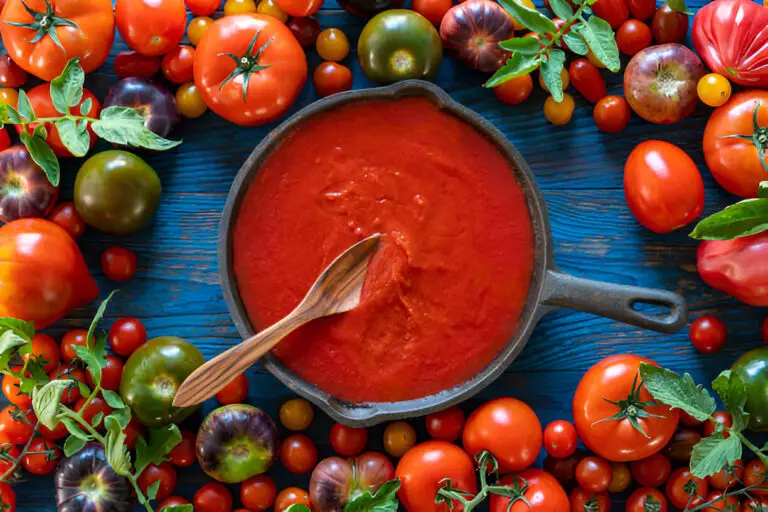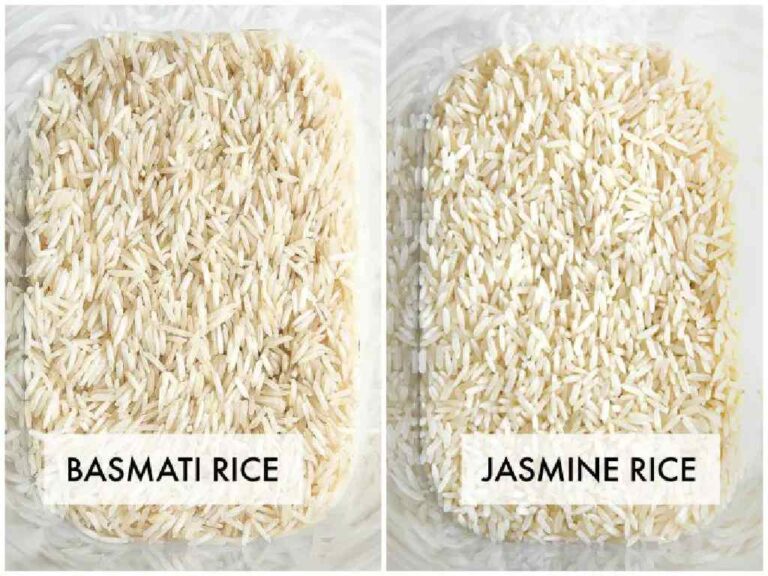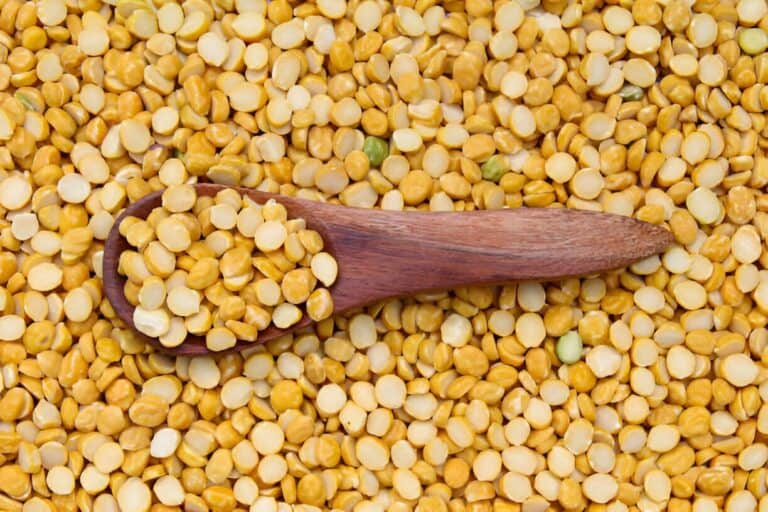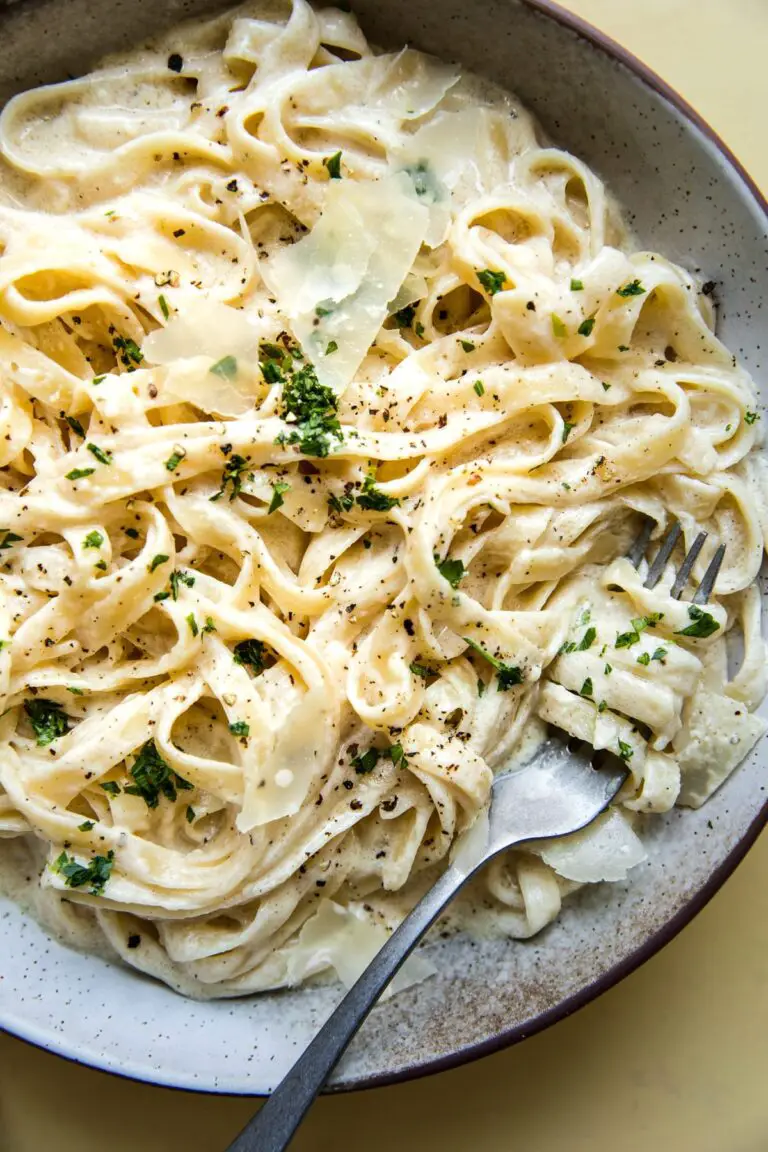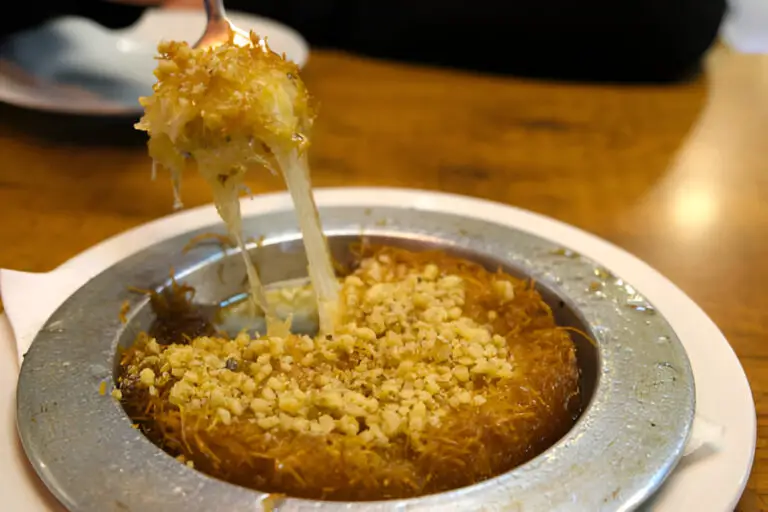What Temperature Do You Roast Brussels Sprouts At? The Science of Roasting
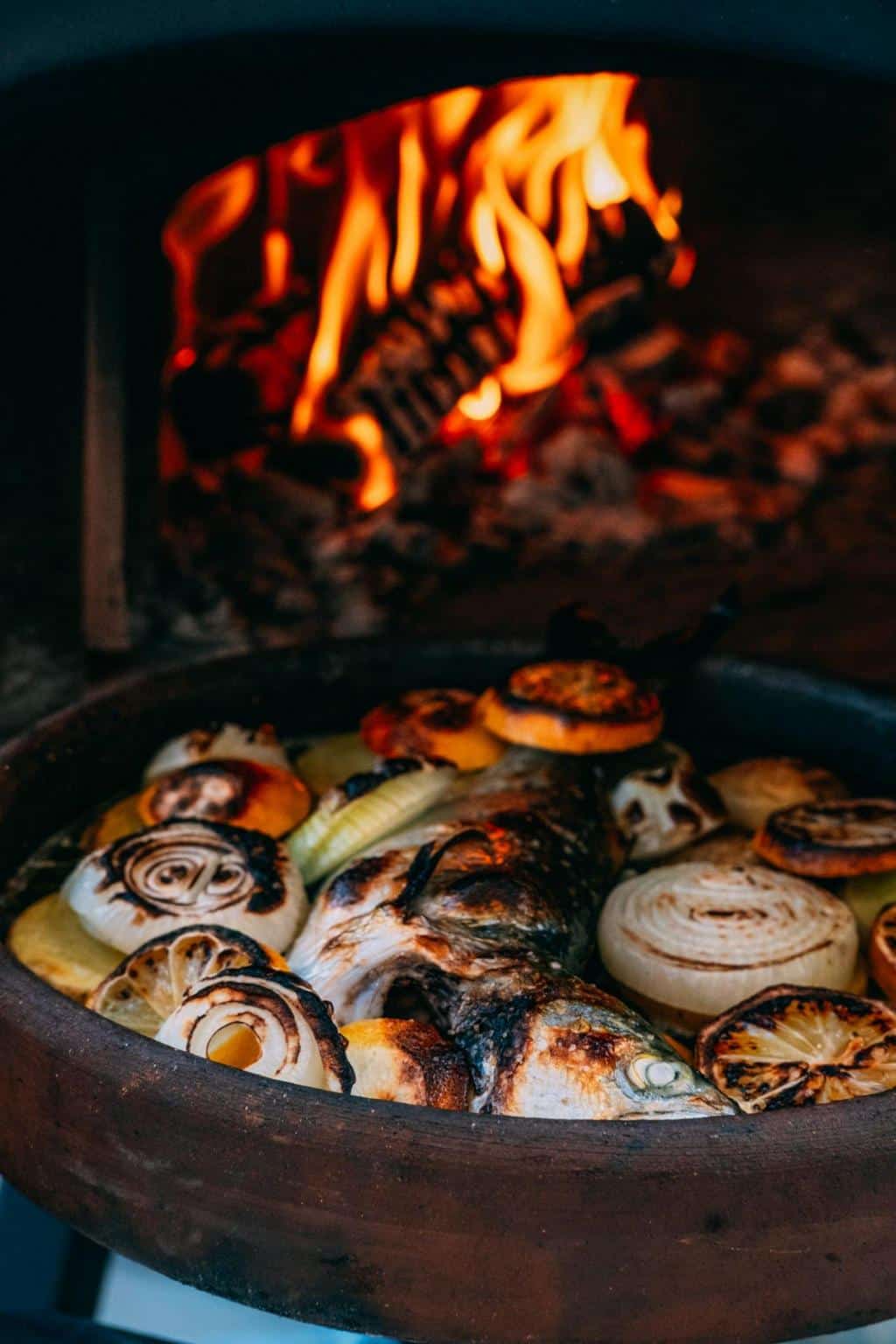
If you’re a fan of Brussels sprouts, you know that when prepared just right, these miniature cabbages can be transformed into a mouthwatering dish. But here’s the conundrum: what temperature should you roast Brussels sprouts at to achieve that perfect balance of crispiness on the outside and tenderness on the inside?
It’s a question that has puzzled many home cooks and Brussels sprout enthusiasts alike. Fear not, for we’re here to unravel this culinary mystery and guide you towards Brussels sprout perfection.
In this article, we’ll embark on a flavorful journey, exploring the ideal roasting temperature for these delightful greens. From finding the sweet spot to unleash their nutty essence to avoiding the dreaded overcooked mush, we’ve got you covered. So, grab your apron, preheat your oven, and prepare to elevate your Brussels sprouts game to new heights. Get ready to unlock the secrets of roasting Brussels sprouts at the perfect temperature.
Why Do You Need to Roast Brussels Sprouts?
Roasting Brussels sprouts is a culinary technique that brings out their natural sweetness, creating a delectable dish that is both tender and crispy. These tiny green globes, when subjected to the high heat of the oven, undergo a transformative journey that elevates their flavor profile to new heights. So why do we need to roast Brussels sprouts? Let’s dive into the reasons behind this popular cooking method.
First and foremost, roasting Brussels sprouts intensifies their taste, enhancing their natural sweetness and caramelizing their outer layers. The heat of the oven causes the sprouts to undergo a delightful browning process, resulting in a complex combination of nutty, savory, and slightly sweet flavors. This caramelization adds depth and richness to the sprouts, turning them into a delectable treat that can captivate even the most skeptical taste buds.
The resulting dish is a delightful balance of tenderness on the inside and irresistible crispiness on the outside.
Another reason to roast Brussels sprouts is the transformation it brings to their texture. When subjected to the dry heat of the oven, the sprouts undergo a magical metamorphosis.
The outer leaves become wonderfully crisp, creating a satisfying crunch with every bite. Meanwhile, the inner layers soften and become tender, providing a delightful contrast to the outer crust. This textural interplay makes roasted Brussels sprouts an irresistible side dish that can add excitement and variety to any meal.
Roasting Brussels sprouts is also a convenient cooking method. With minimal preparation and hands-on time, you can achieve a flavorful and satisfying dish. Simply toss the sprouts in oil, season them with salt, pepper, and any desired herbs or spices, and then let the oven work its magic.
The cooking time can vary depending on your desired level of tenderness and crispiness, but generally, roasted Brussels sprouts are ready in about 20 to 25 minutes. This makes them a quick and easy addition to your weeknight meals or a reliable side dish for dinner parties.
Factors Influencing the Ideal Roasting Temperature for Brussels Sprouts
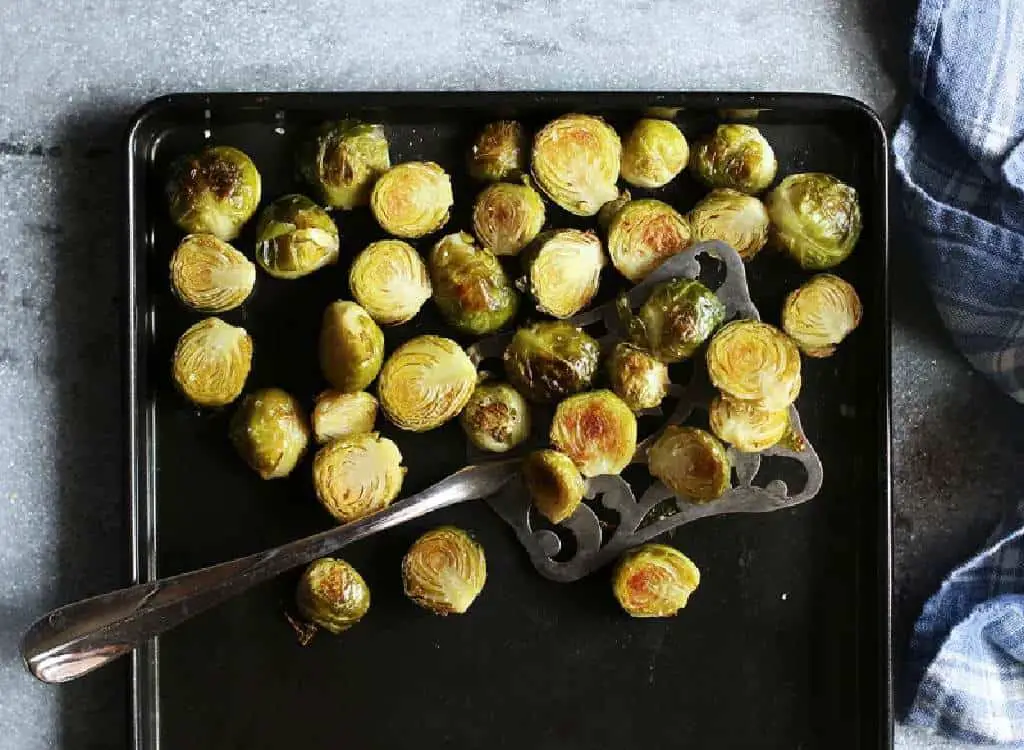
Determining the ideal roasting temperature for Brussels sprouts involves considering several factors. These factors include the size and freshness of the sprouts, the desired level of caramelization and browning, and personal preferences regarding texture and taste.
Size and Freshness of the Brussels Sprouts
The size of the Brussels sprouts affects their cooking time and the amount of heat they can absorb. Smaller sprouts will cook faster, requiring a slightly lower roasting temperature to avoid overcooking or burning. Conversely, larger sprouts may need a slightly higher temperature to ensure they cook thoroughly and develop a desirable caramelized exterior.
Freshness is also a critical factor. Fresher Brussels sprouts tend to be more tender and require less cooking time. Older sprouts may benefit from a higher temperature to help break down their fibrous structure and achieve a pleasant texture.
Desired Level of Caramelization and Browning
The level of caramelization and browning you desire in your roasted Brussels sprouts also influences the roasting temperature. Lower temperatures (around 325°F to 375°F) result in gentle browning and a softer texture. On the other hand, higher temperatures (between 425°F and 450°F) yield a quicker and more pronounced caramelization, producing a crispy exterior.
Personal Preferences and Texture Preferences
Personal preferences, including taste and texture preferences, play a significant role in determining the roasting temperature. Some people enjoy Brussels sprouts with a slight crunch and prefer a higher temperature for a quicker roasting process. Others may prefer a softer texture and opt for a lower temperature to ensure tenderness without excessive charring.
What Temperature Do You Roast Brussels Sprouts At?
Now that we understand the factors at play, let’s explore the recommended temperature range for roasting Brussels sprouts. Keep in mind that these are general guidelines, and you can always adjust them based on the specific recipe and your preferences.
- Low-Temperature Range (325°F to 375°F): Roasting Brussels sprouts at lower temperatures results in a tender texture with gentle browning. This range is ideal if you prefer a milder flavor and a softer bite. It allows the sprouts to cook more slowly and evenly, ensuring a consistent result.
- Optimal Temperature Range for Balanced Roasting (375°F to 425°F): This temperature range offers a balance between tenderness and caramelization. The Brussels sprouts will develop a golden-brown exterior while retaining a pleasant bite. The flavors will be well-developed, and the natural sweetness will shine through.
- High-Temperature Range for Quick and Crispy Brussels Sprouts (425°F to 450°F): If you crave crispy Brussels sprouts with a deep caramelized flavor, the high-temperature range is for you. Roasting at these temperatures creates a wonderful char and a satisfying crunch. However, be mindful of the cooking time, as the sprouts can quickly go from crispy to burned.
The Temperature Sweet Spot
To strike the perfect balance between tender and crispy Brussels sprouts, the ideal roasting temperature ranges from 400°F (204°C) to 425°F (218°C). At this temperature range, the Maillard reaction occurs efficiently, resulting in the caramelization and development of complex flavors.
Roasting at temperatures below 400°F (204°C) may not produce sufficient browning and caramelization, resulting in lackluster Brussels sprouts. On the other hand, temperatures above 425°F (218°C) can lead to rapid browning and potentially burnt sprouts, sacrificing their tenderness.
Effects of Different Roasting Temperatures on Brussels Sprouts
The choice of roasting temperature has a significant impact on the final outcome of your Brussels sprouts. Let’s explore the effects of different temperatures:
- Lower Temperatures and Their Impact: Roasting Brussels sprouts at lower temperatures (325°F to 375°F) produces tender sprouts with a milder flavor. The texture will be softer, and the sprouts will retain a subtle sweetness. This range is ideal if you prefer a gentler flavor and want to avoid excessive browning or charring.
- Moderate Temperatures and the Balance: Roasting at moderate temperatures (375°F to 425°F) strikes a balance between tenderness and caramelization. The Brussels sprouts develop a golden-brown exterior with a hint of crispiness. The flavors become more concentrated, creating a delightful combination of sweet and savory notes.
- Higher Temperatures and the Development of Crispiness and Char: If you desire crispy Brussels sprouts with a robust caramelized flavor, opt for higher temperatures (425°F to 450°F). The sprouts will develop a deeply browned and charred exterior, resulting in a satisfying crunch. However, it’s crucial to monitor the cooking time closely to prevent burning.
To create the perfect roasted Brussels sprouts, experiment with different temperatures and find the sweet spot that aligns with your taste preferences and desired texture.
In the next section, we will explore techniques, tips, and creative recipes for roasting Brussels sprouts at different temperatures, allowing you to elevate your culinary adventures.
Techniques and Tips for Roasting Brussels Sprouts at Different Temperatures
Seasoning and Flavoring Options for Different Temperature Ranges
Seasoning is a key component in enhancing the flavor of roasted Brussels sprouts. When roasting at lower temperatures (around 325°F to 375°F), you can use delicate seasonings such as garlic powder, dried herbs, and a touch of olive oil. These flavors will gently infuse the sprouts without overpowering them.
In the optimal temperature range (375°F to 425°F), bolder seasonings like balsamic vinegar, smoked paprika, or bacon can be added. These ingredients complement the natural sweetness of the sprouts and contribute to a more robust flavor profile.
At higher temperatures (425°F to 450°F), you can experiment with spicier seasonings like chili flakes or cayenne pepper for an extra kick. The intense heat will help to meld the flavors together, resulting in a tantalizing combination of heat and caramelization.
Timing Considerations for Achieving Desired Texture and Doneness
The cooking time for roasted Brussels sprouts depends on the temperature and size of the sprouts. When roasting at lower temperatures, the sprouts will take longer to cook, resulting in a softer texture. It’s important to monitor them closely to prevent them from overcooking or becoming mushy.
In the optimal temperature range, Brussels sprouts typically take around 20 to 25 minutes to achieve a balance of tenderness and caramelization. Keep an eye on them and stir occasionally to ensure even browning.
At higher temperatures, the sprouts will cook more quickly, usually within 15 to 20 minutes. It’s crucial to watch them closely to avoid burning or charring. The high heat will create a crispy exterior while maintaining a tender interior.
Accompaniments and Complementary Ingredients for Roasted Brussels Sprouts
Roasted Brussels sprouts can be enjoyed on their own as a flavorful side dish, but they also pair wonderfully with other ingredients. Here are a few ideas to elevate your roasted Brussels sprouts:
- Cheese: Sprinkle grated Parmesan, grilled cheese, or crumbled feta over the roasted sprouts for a savory, cheesy twist.
- Nuts: Toasted almonds, pecans, or raw walnuts add a delightful crunch and nutty flavor to the dish.
- Dried Fruits: Toss in some dried cranberries, cherries, or raisins for a touch of sweetness and a burst of tanginess.
- Citrus Zest: Finely grate the zest of lemon or orange over the roasted sprouts to add a refreshing citrusy aroma.
Variations in Roasting Brussels Sprouts Based on Cooking Equipment
The cooking equipment you have on hand can influence the roasting process and temperature control. Let’s explore different variations:
Oven Roasting Techniques and Temperature Control
Using a conventional oven is the most common method for roasting Brussels sprouts. Ensure that your oven is preheated to the desired temperature, and distribute the sprouts evenly on a baking sheet. For even heat distribution, avoid overcrowding the pan, allowing the sprouts to roast instead of steam.
Grilling Brussels Sprouts and the Impact on Flavor
Grilling adds a smoky flavor and an enticing char to Brussels sprouts. Preheat your grill to medium-high heat and place the sprouts directly on the grates or use a grill basket. Adjust the grill temperature as needed to achieve the desired level of caramelization and tenderness.
Alternative Methods like Air Frying or Pan Roasting and Their Temperature Requirements
If you prefer a quicker cooking time and a crispier texture, consider alternative cooking methods such as air frying or pan roasting.
For air frying Brussels sprouts, preheat the air fryer to the recommended temperature, typically between 375°F and 400°F. Toss the Brussels sprouts in a little oil or cooking spray, and cook them in a single layer until golden brown and crispy.
Pan roasting involves searing the sprouts in a hot skillet over medium-high heat, then transferring them to the oven to finish roasting. This method requires a higher temperature range, usually between 425°F and 450°F.
Troubleshooting Common Issues while Roasting Brussels Sprouts
Roasting Brussels sprouts can sometimes present challenges. Here are a few troubleshooting tips to help you achieve perfect results:
- Overcooking and Undercooking Brussels Sprouts: To avoid overcooking, check the sprouts for tenderness by inserting a fork or toothpick. If they’re still too firm, continue roasting in short intervals until they reach the desired doneness. If they’re overcooked, they may become mushy or lose their vibrant green color.
- Preventing Excessive Charring or Burning: Keep a close eye on the sprouts while roasting at higher temperatures to prevent burning or excessive charing Brussels sprouts. Stirring occasionally or turning them over halfway through the cooking process can help achieve even browning.
- Adjusting for Variations in Oven or Equipment Performance: Every oven and cooking equipment is slightly different. If you notice that your sprouts are cooking faster or slower than expected, adjust the cooking time and temperature accordingly. It may take some trial and error to find the perfect balance.
Conclusion and Final Thoughts on Roasting Brussels Sprouts
Roasting Brussels sprouts is a culinary adventure that allows you to explore the interplay between temperature, flavors, and textures. By understanding the science behind roasting and experimenting with different techniques and temperatures, you can create roasted Brussels sprouts that are perfectly caramelized, tender, and bursting with flavor.
Don’t be afraid to customize your roasted Brussels sprouts with various seasonings, accompaniments, and cooking methods. Embrace the versatility of this delightful vegetable and let your creativity shine. With each batch, you’ll come closer to discovering your ideal temperature and flavor combination.
So, the next time you’re craving a delectable side dish or a flavorful addition to your meal, reach for Brussels sprouts and embark on a roasting journey that is sure to please your taste buds and impress your guests.
Happy roasting!
FAQs:
What are the health benefits of eating roasted Brussels sprouts?
Roasted Brussels sprouts are a nutritious addition to your diet. They are rich in vitamins, minerals, and fiber. They provide antioxidants that help protect against chronic diseases and promote overall health.
Can I use different cooking methods besides roasting for Brussels sprouts?
Yes, besides roasting, you can steam, sauté, or even blanch Brussels sprouts. Each method offers a unique texture and flavor profile. Experimenting with different cooking techniques can add variety to your Brussels sprouts recipes.
Are there any alternative temperature recommendations for specific Brussels sprout recipes?
Yes, some recipes may call for specific temperature recommendations based on their desired outcome. It’s always best to follow the instructions provided in the recipe you’re using to achieve the desired results.
How do I store leftover roasted Brussels sprouts?
To store leftover roasted Brussels sprouts, let them cool to room temperature, then transfer them to an airtight container and refrigerate. They can be stored in the refrigerator for up to three days. Reheat them in the oven or in a skillet before serving.
Can I roast Brussels sprouts with other vegetables?
Absolutely! Brussels sprouts pair well with various vegetables such as carrots, sweet potatoes, or butternut squash. Combining different vegetables adds color, flavor, and variety to your roasted vegetable medleys.
Are there any safety precautions to consider while roasting Brussels sprouts?
When roasting Brussels sprouts, ensure your oven is properly preheated and maintained at the desired temperature. Use oven mitts or appropriate heat-resistant gloves when handling hot trays or pans. Always follow basic kitchen safety guidelines to prevent accidents.
Can I roast Brussels sprouts without oil for a healthier option?
Yes, you can roast Brussels sprouts without oil. Instead of oil, you can use vegetable broth, a light mist of cooking spray, or roast them on a non-stick baking sheet. Keep in mind that the texture and flavor may differ slightly from when using oil.

